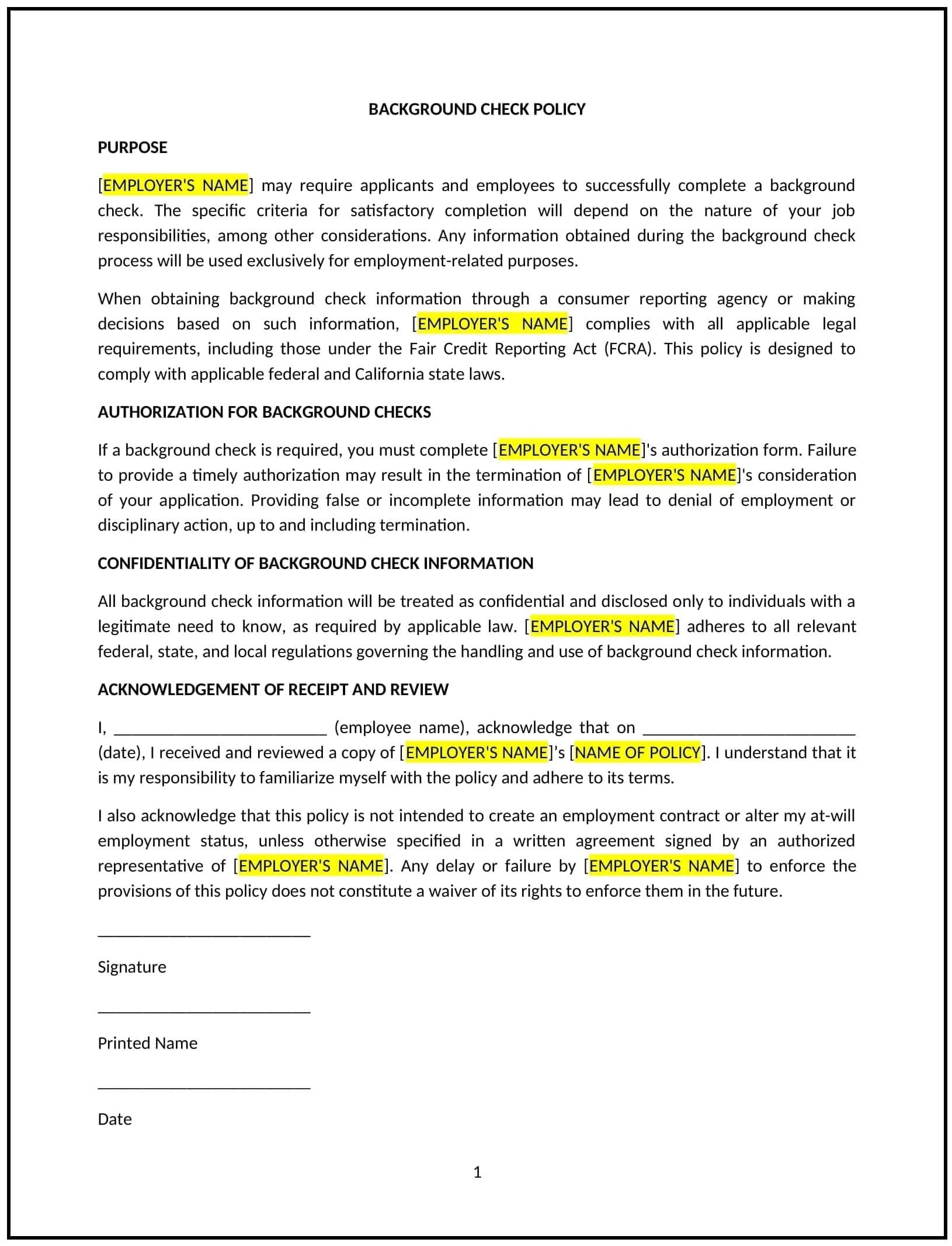Background check policy (California): Free template
Got contracts to review? While you're here for policies, let Cobrief make contract review effortless—start your free review now.

Customize this template for free
Background check policy (California)
In California, a background check policy provides businesses with guidelines for conducting pre-employment and employment-related background screenings. This policy ensures that checks are conducted lawfully, fairly, and transparently while protecting applicants’ and employees’ rights under California law, including the California Consumer Privacy Act (CCPA) and the Fair Chance Act.
This policy outlines permissible checks, applicant consent procedures, and the use of background information in hiring or employment decisions. By implementing this policy, California businesses can mitigate risks, ensure compliance, and make informed hiring decisions.
How to use this background check policy (California)
- Define scope: Specify the types of background checks the business may conduct, such as criminal history, employment verification, or credit checks, and the roles for which they are required.
- Obtain consent: Require applicants and employees to provide written authorization before initiating any background checks.
- Follow state-specific restrictions: Ensure compliance with California’s Ban-the-Box law, which limits inquiries into criminal history until after a conditional job offer is made.
- Handle adverse findings: Outline procedures for notifying individuals of adverse actions based on background check results, including providing required disclosures.
- Protect privacy: Ensure all background check information is stored securely and used only for legitimate business purposes.
Benefits of using this background check policy (California)
This policy offers several advantages for California businesses:
- Supports compliance: Aligns with California-specific laws, including the Fair Chance Act, CCPA, and other relevant regulations.
- Promotes fairness: Ensures background checks are conducted consistently and transparently across all candidates and employees.
- Mitigates risks: Helps businesses make informed decisions to reduce risks related to hiring or retention.
- Protects privacy: Safeguards sensitive information, fostering trust with applicants and employees.
- Enhances accountability: Establishes clear procedures for conducting and using background checks, ensuring ethical practices.
Tips for using this background check policy (California)
- Address California-specific laws: Reflect restrictions such as the Ban-the-Box law, which delays criminal history inquiries until after a conditional offer.
- Train hiring managers: Provide guidance on following lawful background check procedures and avoiding bias in employment decisions.
- Use trusted providers: Partner with reputable background check vendors who understand California’s regulatory requirements.
- Maintain documentation: Keep records of consent forms, background check reports, and related communications to ensure compliance and accountability.
- Update regularly: Revise the policy to reflect changes in California laws or hiring practices.